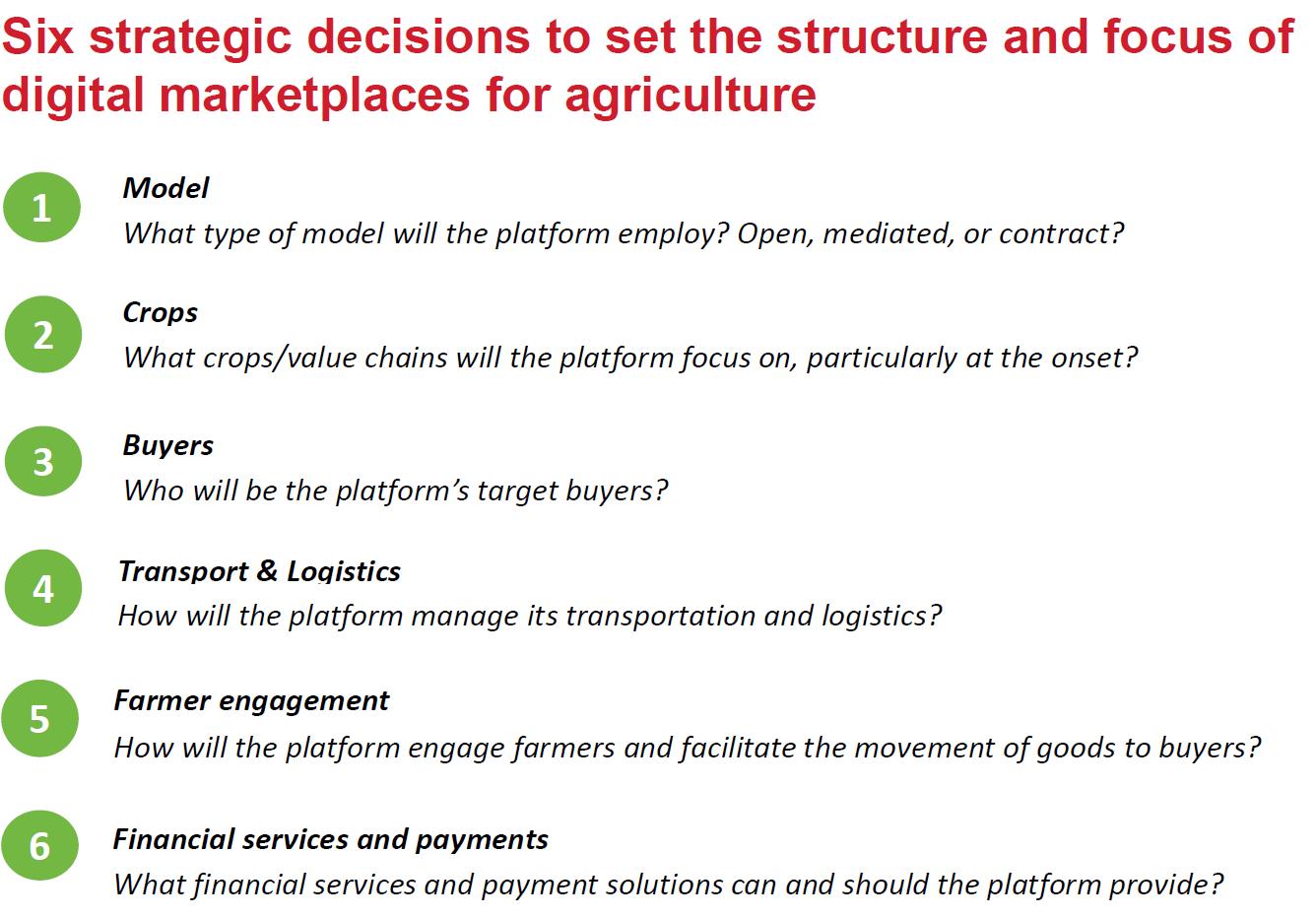Super Platforms: Connecting Farmers to Markets in Africa
Super platforms are pushing the boundaries of financial inclusion around the world, creating millions of new jobs and stimulating trade, especially in rural markets. These “platforms of platforms” are typically thought of as connecting customers and merchants, but as new Mercy Corps research in Africa shows, they are also connecting farmers to markets – potentially increasing farmers’ incomes by 50 percent or more.

To better understand super platforms’ transformative potential for digital markets in Africa, Mercy Corps’ AgriFin Accelerate (AFA) program inventoried models from around the world with a focus on agricultural markets and smallholders, who make up more than 60 percent of Africa’s population and grow 80 percent of its food. Researchers reviewed 11 digital marketplaces for agriculture, ranging from new and innovative players like Twiga Foods in Kenya to well-known giants like Taobao.
From this research, we learned that digital platforms link the smallest of agricultural businesses to an expansive and ever-growing market of buyers, often bypassing middlemen and resulting in better prices for goods sold. When they operate at scale, these platforms also greatly reduce transaction costs related to aggregating and moving goods and making payments. Reliable access to markets and income makes it easier for farmers to invest in productivity enhancements, from purchasing inputs and machinery to hiring additional laborers. Digital data from platform activities can drive increased financing to farmers, both as buyers of services and sellers of produce.
Diverse super platform models are driving these changes. When we use the term “e-commerce,” we tend to think of Alibaba or Amazon, both of which link consumers to an endless array of buying options. Yet a wider variety of companies with more focused and nuanced models are emerging in developing markets, addressing constraints inherent to those markets, including lack of infrastructure, low financial inclusion and poor access to technology.
Our research identified six strategic decisions companies made when developing and scaling their market platforms for agriculture. Significant variance was noted across models depending on the factors listed below.

Research shows that logistics are usually a major cost driver of digital market development. Robust logistics networks are a key constraint across Africa. Larger e-commerce companies (e.g., super platforms) can own and control a large part of their logistics infrastructure. But emerging e-commerce companies have to find alternative solutions, such as third-party contracting. Platforms are also experimenting with disaggregated logistics, leveraging underused logistics capacity. Data scarcity and data management are another major cost driver. E-commerce platforms need and generate information on clients, warehousing and road conditions, among other things, as well as the data analytics needed to manage sales and logistics. Platforms that invest in data see major benefits in improved farm-to-market logistics, more tailored customer support, investment and increased sales.
Converting farmers to digital marketplaces will require trust built on strong customer experience. Trust is a key driver for the success of any e-commerce platform that links buyers and sellers, particularly across the distances and risk factors of agriculture. While some platforms provide explicit guidelines to help users benefit from the platforms, others increase user trust by enhancing quality checks and providing safe payment methods. Farmer-centric research in Kenya showed that, while farmers quickly grasped the potential of expanded digital markets to help them find buyers and sell more at higher prices, they also need market insights and reliability from the platform to make decisions on what to grow and when to sell. At least in the early stages of growth, farmers will require some level of human touch-points and high-quality information to make the jump to the digital marketplace.
So what needs to happen for models to grow and scale in Africa? As Africa's population doubles by 2050 and the demand for food and rural jobs escalates, the transformative power of super platforms becomes a strategic imperative. We foresee growth coming from mobile money giants with strong rural coverage and from ubiquitous internet players like WhatsApp, as long as meaningful farmer engagement takes place and relevant products are on offer. Advances from Africa-native companies in e-logistics and data-smart agribusiness like iProcure and Twiga Foods will also be important as we look forward to the transformation of agriculture driven by innovative business models and digital technology.
This blog post was contributed by Mercy Corps' AgriFin Accelerate program.




Add new comment